COVID-19 threatened his company. He fought back from his garage.
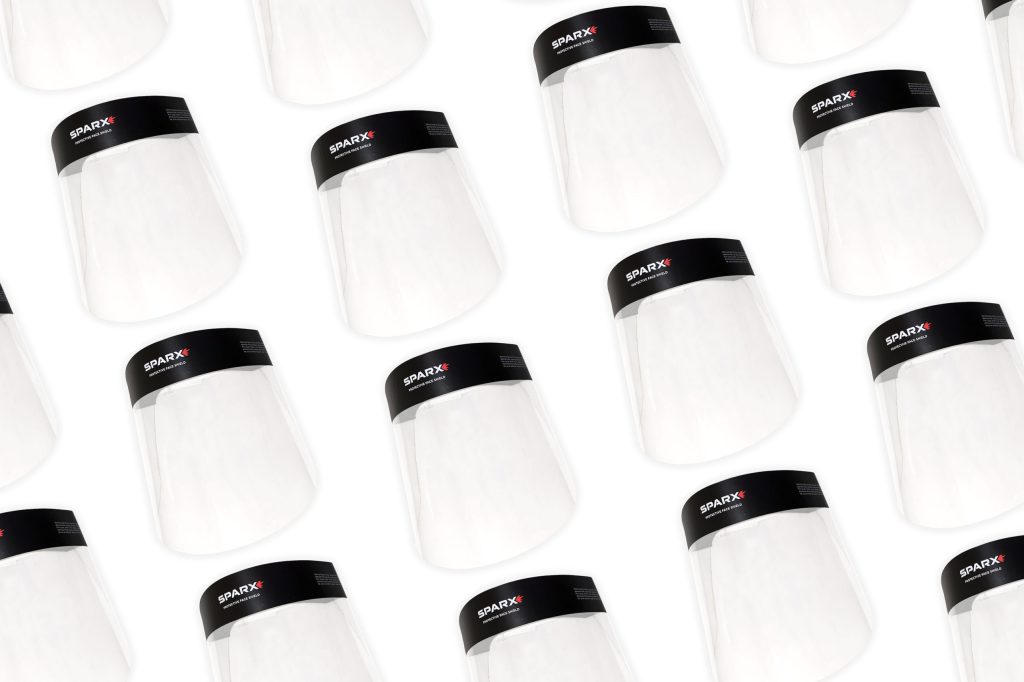
Russ Layton’s garage in suburban Boston has been outfitted with two industrial laser cutting machines. His vibrant young company has been reinvented and spread out among various locations. His children—15-year-old Owen and 14-year-old Grace—are helping to construct thousands of protective face shields per day.
“All my doors are open to air out the garage because it smells like laser-cut plastic,” says Layton, a Northeastern graduate who is chief executive and founder of Sparx Hockey. “It is surreal, because I’m sitting here in my home office, looking out the window, and I see people walking their dogs while we’re all pulling this company together.”
The past several weeks have been discouraging and inspiring for Sparx, whose lines of portable skate sharpeners are used by 25 National Hockey League teams and thousands of individuals. In 2019, Sparx was ranked 56th on the Inc. 500 list of the fastest growing private companies in the U.S.—a measure of the success that enabled Layton to issue bonuses to employees for the first time just last month.
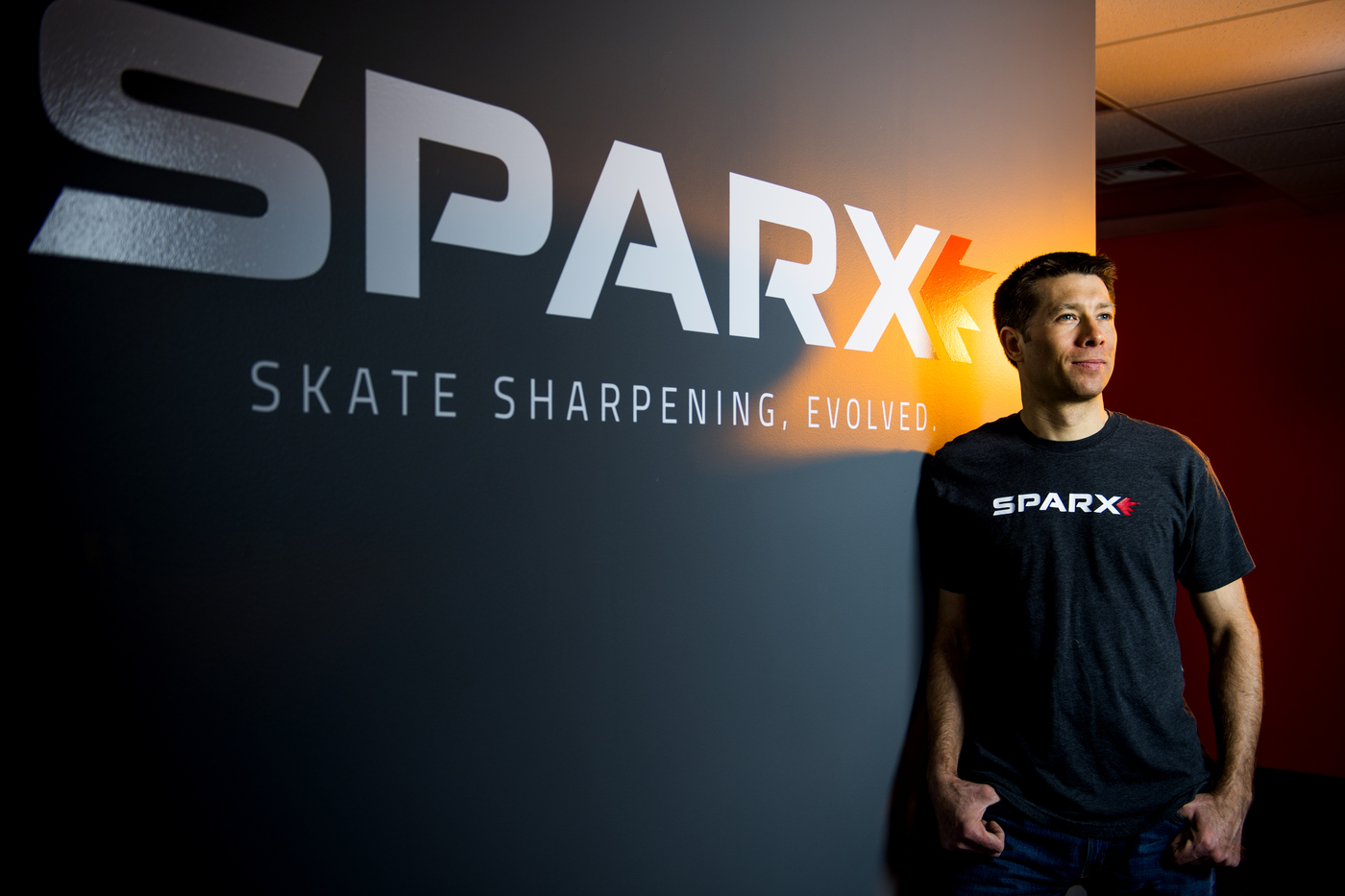
Days later, Layton was furloughing 18 of them. Massachusetts had ordered workers of nonessential businesses like Sparx to stay at home in response to the COVID-19 pandemic. If Layton had kept paying them during the shutdown of organized hockey throughout the world, the company would have gone out of business.
“We went in a span of two weeks from ‘nothing can stop us, we figured this out, we crossed the chasm’—to 70 percent of our people got laid off,” Layton says. “It was just unbelievable how fast that went.”
The idea of pivoting his business came from New Hampshire, where Bauer Hockey had made the transition from a producer of sports equipment to a manufacturer of face shields. Bauer shared its plans, enabling the Sparx engineers (three are Northeastern graduates) to quickly figure out how to convert their assembly line.
“We have the equipment, we have the personnel, and we have most of the supply chain,” Layton says. “And so, within a couple of days of letting people go, we were trying to figure out how to bring them back.”
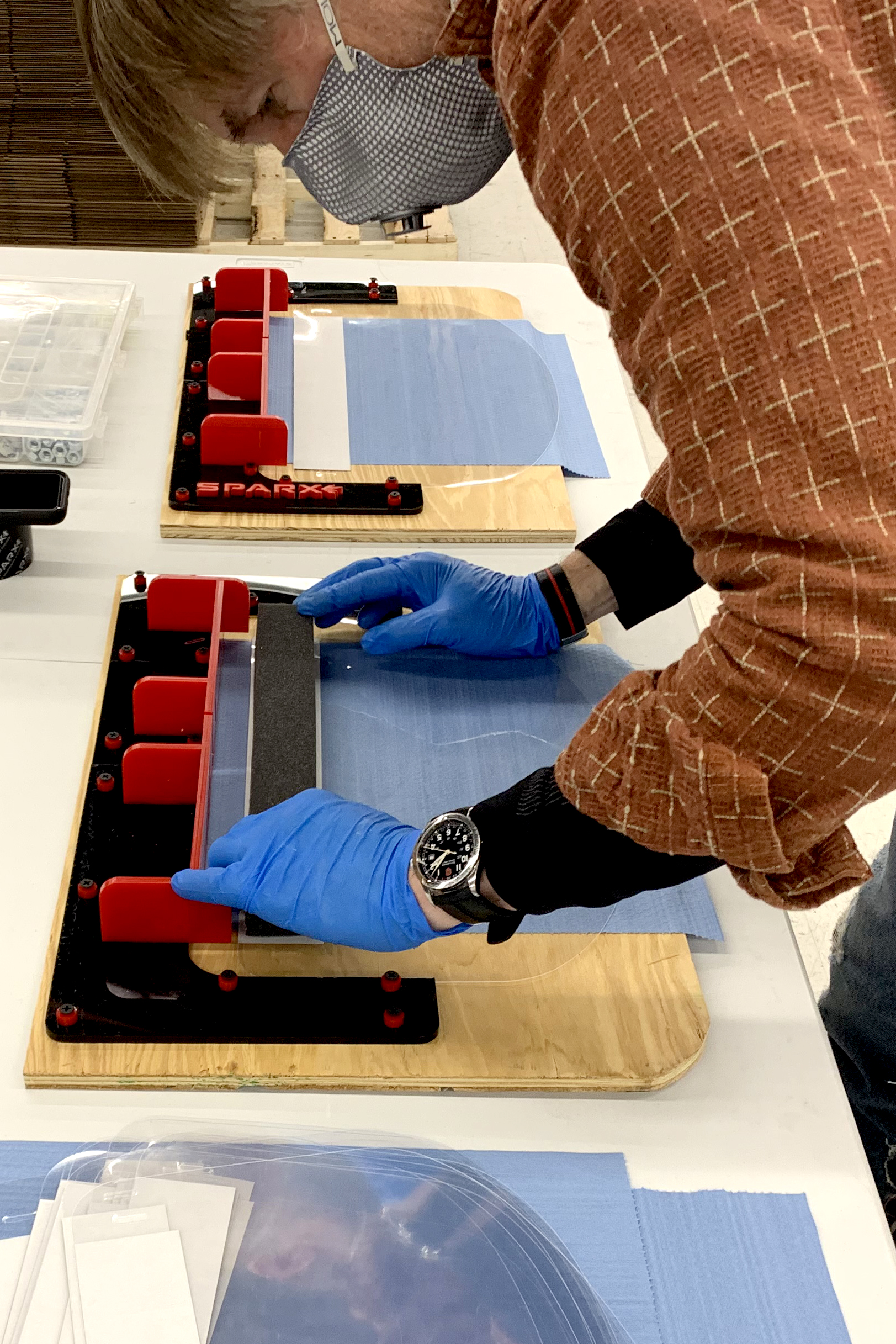
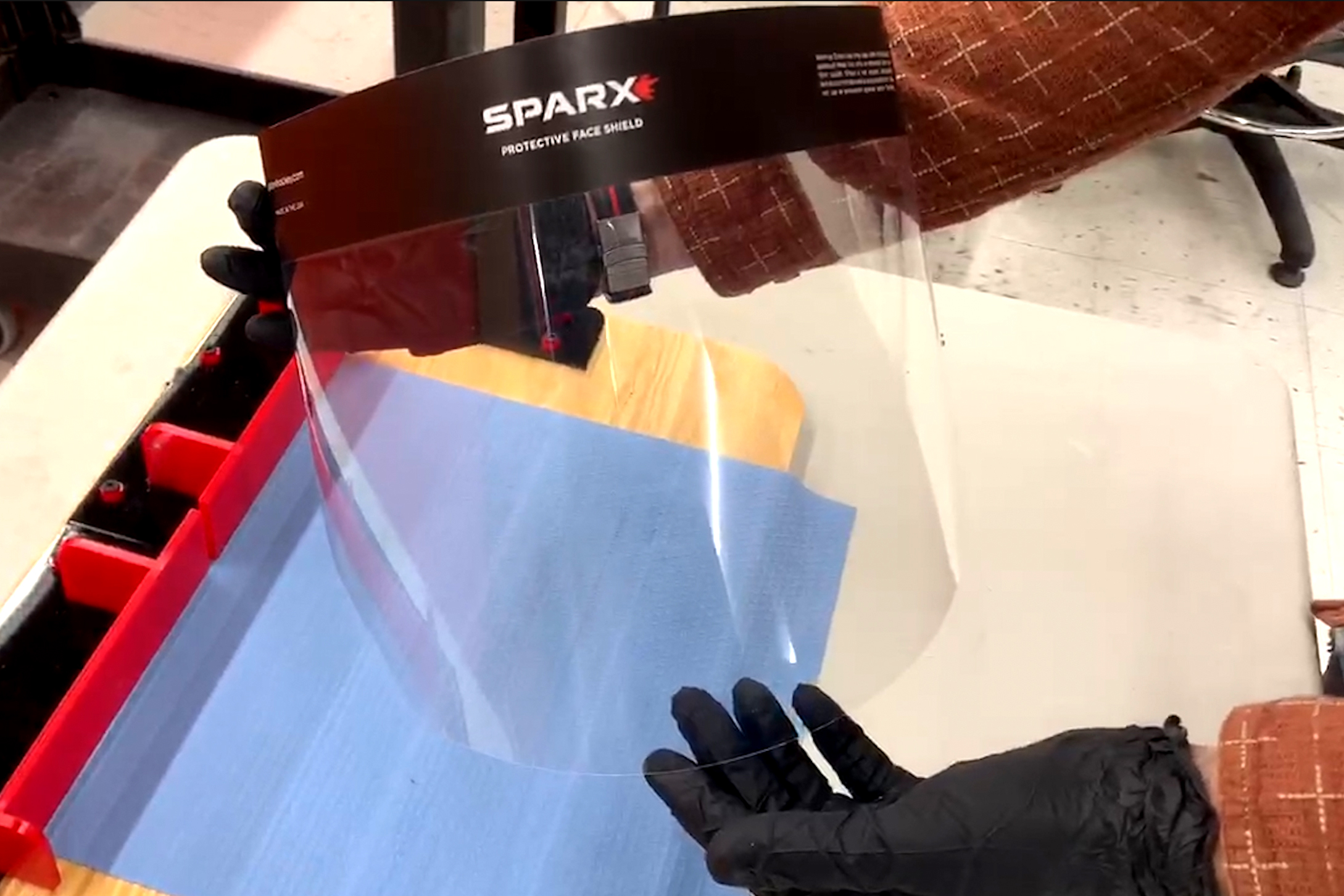
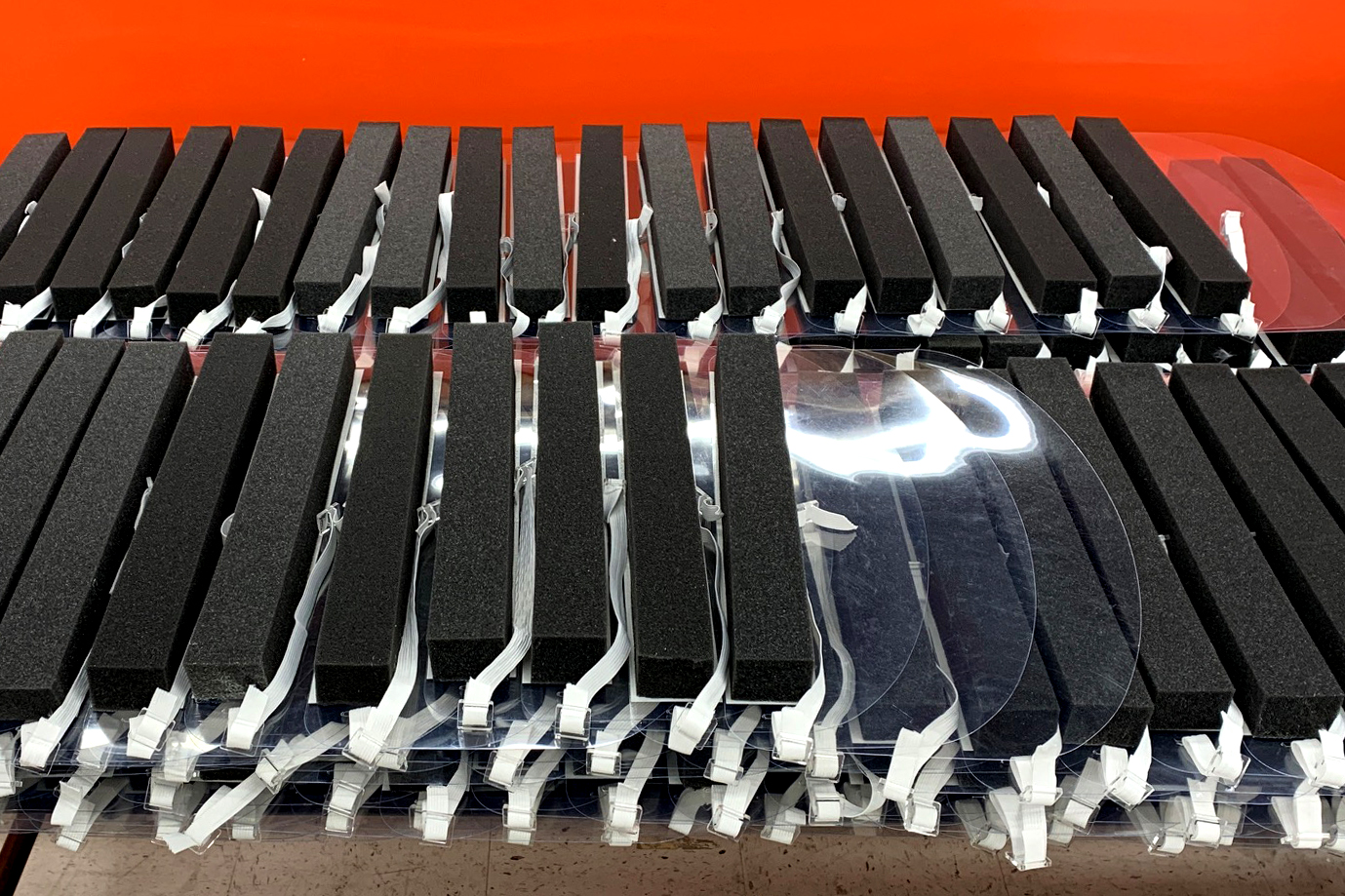
Their initial prototype was made from laminated cardstock. The first order arrived March 31. They constructed 10 shields on April 6, another 350 the next day, and close to 1,000 by the end of last week, with the imminent goal of producing 2,000 daily. A new supply of foam that is pre-fitted with adhesive should simplify the process and enable production of 2,000 shields per day, despite the fact that Layton and his employees are working between their homes and their otherwise-shuttered office building, where pieces of equipment are kept in the cafeteria and hallways.
The Sparx protective face shield is intended for a single use and is designed to be worn with medically approved masks and eyewear. It is 10 inches long and resembles a welder’s headgear. At a price of $5.90 each, the shields can be purchased in boxes of 10 or more, which enables Sparx to sell in bulk to hospitals as well as in smaller numbers to entities with lesser need—pharmacies, fire departments, and banks.
“People can place their order in five minutes on their phone,” Layton says.
Scores of American businesses are transforming production in order to meet the needs of the new emergency economy. G-Form, a New England manufacturer of sports protective gear led by chief executive Glen Giovanucci, a former Northeastern hockey captain and assistant coach for the Huskies, has dedicated its facility in Smithfield, Rhode Island, to manufacture face shields.
“Our facility is preparing to produce as many medical face shields as possible,” says Giovanucci. “We take great honor in supporting the efforts to protect our healthcare heroes with the necessary personal protective equipment.”
Layton has brought back nine of the furloughed workers. He hopes that the Payroll Protection Program, a federal initiative that covers eight weeks of salaries, will enable him to rehire the rest of his staff.
“People make sacrifices when they go to a startup,” Layton says. “They believe in you as a person, they believe in the mission and what you’re building. You know who they’re married to, you know their kids, you know what their financial situation is—to lay them off was absolutely heart wrenching.”
Instead of accepting their fate, Layton and his employees are renewing their company while contributing to a national effort to overcome the pandemic. Their shields will protect people and contribute to the economy.
“One of the nice things about being a small, nimble business is that you can react very quickly,” Layton says. “And now we’ve mobilized to help the cause.”
For media inquiries, please contact media@northeastern.edu.






